How Long Does Probate Typically Take in Greenville County, SC?
The death of a loved one brings a difficult period of grief and transition. For many families in Greenville County, South Carolina, this emotional time is compounded by the practical responsibilities that follow—including the process of settling the deceased’s estate. The legal procedure for this is known as probate, and one of the most common questions people have is: How long will it take?
The answer is rarely simple, as the duration of probate can vary dramatically based on the complexity of the estate, the presence of a will, and the cooperation of all parties involved. While a straightforward estate might be settled relatively quickly, a complex one could take years.
What Is Probate, and Why Is It Necessary in Greenville County?
Probate is the court-supervised legal process of proving the validity of a will, if one exists, and then identifying, gathering, valuing, and distributing a deceased person’s assets to their rightful heirs or beneficiaries. This process ensures that a deceased person’s debts and taxes are paid before their property is passed on.
In Greenville County, all probate matters are handled by the Greenville County Probate Court. This court has jurisdiction over all estates, and its oversight is designed to protect both the estate’s creditors and the beneficiaries. The process is a formal way to transfer legal title of property from the deceased person to the living beneficiaries. Even if a person dies without a will, the estate will still need to go through the probate process to legally transfer assets.
How Long Does Probate Take on Average in Greenville, SC?
A typical probate case in Greenville County, South Carolina, usually takes between 9 and 18 months to complete. However, this is a broad average, and the reality for any specific estate can be much different. The process can be completed in as little as six to eight months for small, uncomplicated estates. For larger, more complex estates, or those with disputes, it can take two years or more. The specific duration depends on many variables that are unique to each estate.
Key Factors That Influence the Probate Timeline
The length of the probate process is not determined by a single factor but by a combination of many. These factors can either streamline the process or create significant delays.
- Estate Size and Complexity: A smaller estate with few assets and no disputes will be much faster to probate than a large estate with multiple real estate holdings, business interests, and a diverse investment portfolio. Valuing and managing complex assets takes time and often requires professional appraisals.
- Presence of a Will: If the deceased had a valid will, the process of identifying beneficiaries and the personal representative (executor) is generally smoother. When there is no will, the estate is considered “intestate,” and South Carolina law dictates who inherits the property. This can introduce complexities and potential disagreements among family members.
- Heir and Beneficiary Disputes: Disagreements among family members or beneficiaries are a leading cause of probate delays. This can include contesting the validity of the will, arguing over the distribution of assets, or challenging the actions of the personal representative. Will contests, in particular, can halt the probate process for a long time until the court resolves the dispute.
- Creditor Claims: South Carolina law requires a personal representative to notify creditors of the death. Creditors then have a specific period to file a claim against the estate. If there are many creditors or if the claims are contested, it can prolong the process.
- Real Estate and Asset Sales: If the estate includes real estate that needs to be sold, the timeline can be affected by market conditions, the time it takes to prepare the property, and the closing process.
- Taxes: The personal representative must file and pay all final income taxes for the deceased, as well as any estate or inheritance taxes that may be due. Depending on the size of the estate, this can be a complex and time-consuming process.
A Step-by-Step Breakdown of the Probate Process in Greenville County
The probate process follows a structured sequence of events, each with its own timeline. Here is a general overview of the steps involved:
Step 1: Filing the Petition for Probate (Initial 1-2 Months)
- The process begins when an individual, usually the named personal representative in the will or a family member, files a petition with the Greenville County Probate Court to open the estate.
- Along with the petition, they must submit the original will (if one exists) and a certified copy of the death certificate.
- The court will then formally appoint a personal representative to administer the estate.
Step 2: Notifying Heirs and Creditors (First 5-6 Months)
- Once appointed, the personal representative must provide formal notice to all known heirs and beneficiaries.
- South Carolina law requires the personal representative to publish a notice to creditors in a local newspaper for three consecutive weeks.
- Creditors then have a statutory period, typically eight months from the date of the first publication, to file a claim against the estate. This is often the single longest fixed period in the probate timeline.
Step 3: Inventory and Appraisal of Assets (Months 2-6)
- The personal representative must identify and gather all of the deceased person’s assets.
- They must then create a detailed inventory and have the assets professionally appraised to determine their fair market value as of the date of death. This includes real estate, personal property, bank accounts, and investments.
- This inventory must be filed with the Probate Court.
Step 4: Paying Debts and Taxes (Months 6-12)
- After the creditor claim period has passed, the personal representative pays all valid debts, including outstanding bills, mortgages, and credit card balances.
- They are also responsible for filing the deceased’s final income tax return and any required estate tax returns.
Step 5: Final Accounting and Distribution (Months 9-18)
- Once all debts and taxes are paid, the personal representative prepares a final accounting of the estate’s finances. This details all income, expenses, and a plan for distributing the remaining assets.
- The final accounting is submitted to the court and to the beneficiaries for their approval.
- After the court approves the final accounting, the personal representative can distribute the remaining assets to the beneficiaries as outlined in the will or by state law.
Step 6: Closing the Estate (Final Month)
- After distribution, the personal representative files a petition with the court to formally close the estate.
- The court reviews the closing documents and issues an order discharging the personal representative from their duties, effectively ending the probate process.
What Is a “Summary Administration” and How Does It Affect the Timeline?
For small, uncomplicated estates in South Carolina, a “Summary Administration” may be available. This streamlined process can significantly reduce the probate timeline.
- Eligibility: An estate may qualify for a Summary Administration if the value of the estate, after deducting liens and encumbrances, is less than $25,000.
- Process: This simplified procedure can often be completed in as little as a few months because it eliminates several of the formal, time-consuming steps of a full administration.
Even with a Summary Administration, there are still specific legal requirements that must be met, so it is important to ensure the process is followed correctly.
What Can Cause Probate to Take Longer Than Expected?
Some situations almost guarantee a longer probate timeline. Be prepared for a more extended process if any of these are present:
- Will Contest: If someone challenges the validity of the will, alleging it was improperly executed, the deceased lacked capacity, or was under undue influence, the entire probate process can be put on hold for many months or even years while the court hears the case.
- Missing Heirs: If a beneficiary or heir cannot be located, the personal representative must make a diligent effort to find them. This can involve hiring a private investigator and may require court approval for how to handle that person’s share of the estate.
- Disputes Over Asset Values: If beneficiaries disagree with the valuation of a specific asset, such as a piece of real estate or a business, it can lead to further court proceedings to resolve the matter.
- Unusual Assets: An estate with complex assets like patents, copyrights, or foreign real estate can be particularly challenging to value and transfer. This often requires the assistance of specialized professionals, adding both time and cost to the process.
- Wrongful Death Claim: If the deceased was involved in a wrongful death lawsuit, the probate estate will remain open until that lawsuit is settled. This can extend the probate timeline for a considerable amount of time.
How Legal Counsel Assists with Probate Administration
While a personal representative is tasked with managing the probate process, they do not have to do it alone. An experienced real estate attorney can play a vital role in ensuring the process is handled efficiently and correctly.
An attorney can:
- Prepare and file all necessary documents with the Greenville County Probate Court.
- Advise the personal representative on their legal duties and responsibilities.
- Coordinate with appraisers, accountants, and other professionals to manage the estate’s assets and liabilities.
- Help resolve disputes between beneficiaries or creditors, potentially avoiding costly and time-consuming litigation.
- Ensure all deadlines are met, preventing costly errors that could jeopardize the estate.
- Navigate South Carolina-specific laws and court procedures.
A real estate attorney acts as a trusted guide, focused on protecting the estate’s value and ensuring a smooth and timely distribution to the rightful heirs. They work to streamline the process, reduce the emotional and administrative burden on the family, and bring the estate to a proper close.
What to Do While Waiting for Probate to Conclude
The waiting period for probate can be frustrating, but there are several things the personal representative and beneficiaries can do to stay productive and informed:
- Maintain Records: The personal representative should keep meticulous records of all communications, expenses, and actions taken on behalf of the estate.
- Communicate: The personal representative should keep the beneficiaries informed about the progress of the estate. Regular, transparent communication can help prevent misunderstandings and disputes.
- Continue to Manage Assets: Until the estate is formally closed, the personal representative remains responsible for managing and protecting the assets. This includes paying property taxes, maintaining real estate, and managing investments.
- Be Patient: The legal system moves at its own pace. While an attorney can help to expedite the process, certain legal requirements and deadlines, like the creditor claim period, cannot be shortened.
Why a Lengthy Probate Isn’t Always a Bad Thing
Although most people hope for a swift probate, a longer timeline is not necessarily a sign of a problem. In many cases, it simply reflects the complexity of the estate or the personal representative’s diligent efforts to ensure everything is done correctly.
For example, taking a little extra time to find the right buyer for a piece of real estate can lead to a higher sales price, ultimately benefiting the beneficiaries. Similarly, carefully vetting all creditor claims can prevent the estate from paying invalid debts.
Greenville County Probate Lawyers: Schedule a Consultation
Probate in Greenville County is a structured process designed to ensure a loved one’s final wishes are honored and their financial affairs are settled. While the average timeline is approximately 9 to 18 months, many factors can extend this period. The keys to an efficient probate are a well-prepared will, clear communication among family members, and meticulous management of the estate’s affairs. If you are facing the probate process, it is important to have a clear understanding of the steps involved and to be prepared for potential delays.
At the DeBruin Law Firm, our team is dedicated to providing comprehensive legal support for families navigating probate. We are here to help you manage the complexities of estate administration, ensuring that your loved one’s legacy is handled with care and efficiency.
To discuss your specific situation and learn how we can assist you, contact us at (864) 982-5930 or send a message online to schedule a consultation.



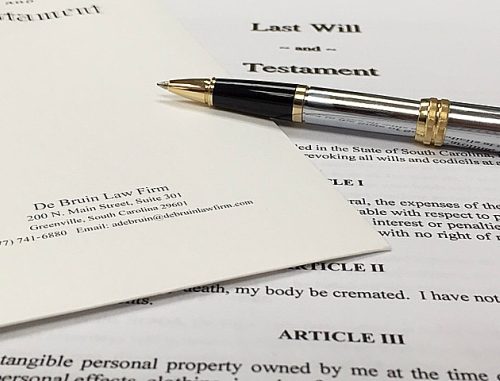
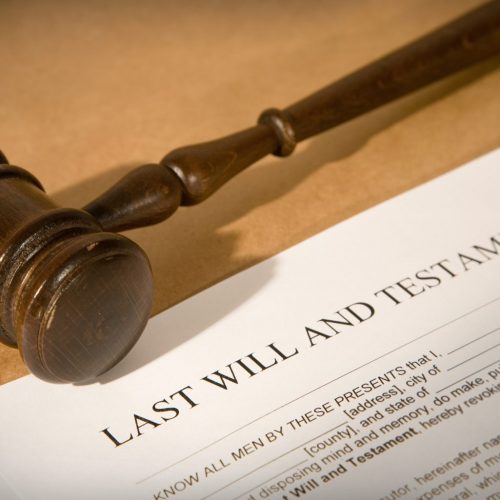
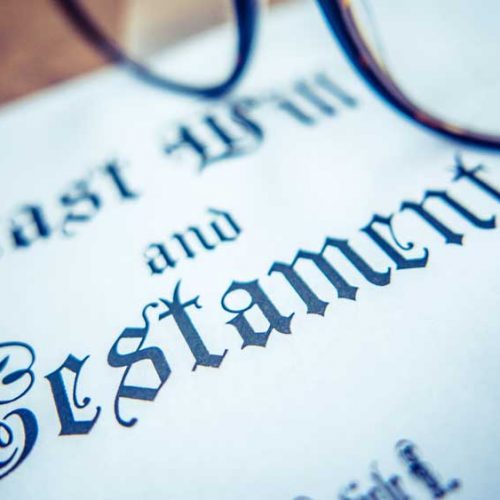

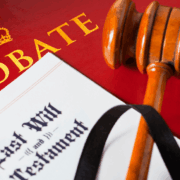
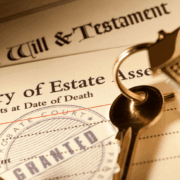




Leave a Reply
Want to join the discussion?Feel free to contribute!